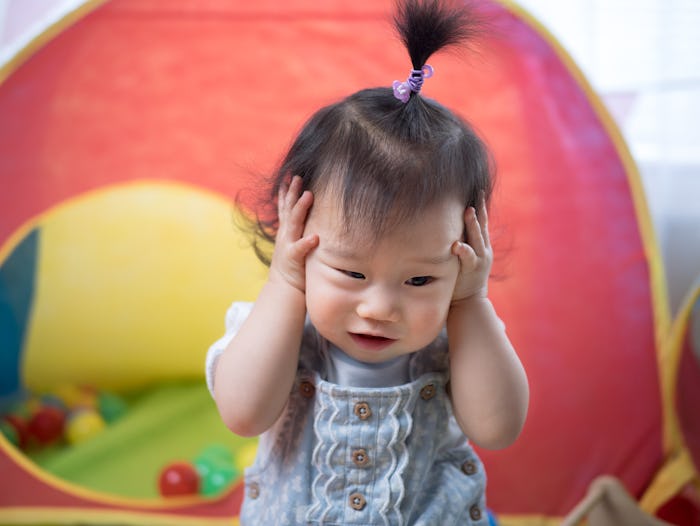Life

How To Help A Frustrated Toddler
When an adult is feeling discouraged, they have a number of ways to work through challenging situations. From finding support amongst friends and seeking counsel to taking time for self care and meditating on things, there's no shortage of options for resolution. But if you're a child and your brain is still learning how to handle complex emotions, it can be decidedly more difficult. That's why knowing how to help a frustrated toddler can be extremely beneficial to both you and them.
Perhaps the most pressing issue is one of communication. Most adults have a huge mental dictionary to pull from when it comes to finding the words to express themselves. That's not always the case with children. Instead of shying away from complex issues, you should face them head on. As psychology professor Dr. Kristin Lagattuta advised Parents, you should "talk to your child about negative emotions so he doesn't think there's anything wrong or scary about these types of feelings." If they can identify and label the specific things they're feeling, then you'll both be able to solve things more easily.
For the times when you're not there, give them a solid problem-solving method they can use on their own. Child and adolescent psychotherapist Katie Hurley wrote for PBS that you can keep things simple by teaching your toddler the stoplight method to handle frustration. First, like a red light, they should stop what they're doing when they feel negative emotions beginning to surge. Next, like a yellow light, tell your little one to pause and consider possible solutions — ask for help, take a different approach, or talk it out, for instance. Then, once they've found the option that feels right for them, they have the green light to move forward. The traffic signals are simple enough for even the youngest child to understand and the three steps keep everything short and sweet.
Ultimately, the best way you can help a toddler who is frustrated is to lead by example. Though having conversations about emotions and responses is definitely a great approach, your little one's mind is like a sponge, taking note of everything you do. That's why psychologist Dr. Jim Taylor told Psychology Today that modeling calm and positive behavior teaches children how to handle challenges in a healthy and productive way. You might just be surprised by how much your little one can learn about the world around them just by watching you.